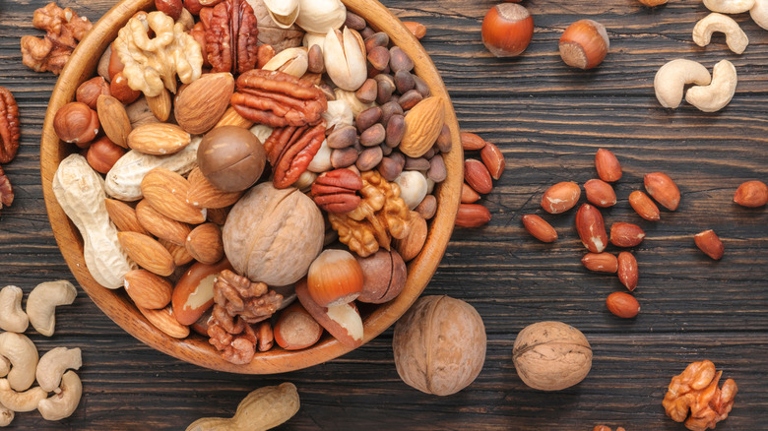If you’ve ever eaten a walnut only to find it tastes more bitter than expected, you’re not alone. In fact, this is a common occurrence that can be attributed to a variety of factors. Read on to learn more about why your walnuts might taste bitter and what you can do to avoid it in the future.
High Amounts of Antioxidants
This may help to remove some of the bitter compounds. However, when consumed in large amounts, they can also cause a bitter taste. It’s not uncommon to notice a bitter taste in your walnuts, and it’s usually due to high amounts of antioxidants. Antioxidants are beneficial compounds that can help protect your cells from damage. If you’re concerned about the bitter taste of your walnuts, you can try soaking them in water for a few hours before eating them.
Decreases Inflammation
It’s a common question, and one that has a variety of answers. While some people may be more sensitive to the bitterness of walnuts than others, there are a few reasons why walnuts may taste bitter to some. If you’ve ever wondered why your walnuts taste bitter, you’re not alone.
One reason why walnuts may taste bitter is due to their high concentration of tannins. Tannins are a type of polyphenol that can be found in a variety of plant-based foods, including walnuts. While tannins are beneficial to our health in small amounts, they can cause a bitter taste when consumed in large quantities.

Fat is a necessary part of our diet, but too much of it can cause a bitter taste. This is because fat slows down the movement of food through our digestive system, which can cause a build-up of toxins and bacteria that can lead to a bitter taste. Another reason why walnuts may taste bitter is due to their high fat content.
Phytates are a type of compound that can bind to minerals, making them unavailable for absorption. This can lead to a deficiency of essential minerals, such as iron, which can cause a bitter taste. Finally, walnuts may taste bitter due to their high concentration of phytates.
This may help to remove some of the compounds that contribute to the bitter taste. While the reasons why walnuts may taste bitter are not fully understood, there are a few theories that may explain it. If you find that your walnuts taste bitter, you may want to try soaking them in water for a few hours before eating them.
Promotes Healthy Gut
The gut microbiota also plays a role in mental health and well-being. The gut microbiota is important for many aspects of health, including digestion, immunity, and metabolism. The human gut is home to trillions of microbes, including bacteria, fungi, and viruses.

They also contain antioxidants and phytochemicals that may promote gut health. Walnuts are a good source of fiber, vitamins, and minerals. Walnuts may also help to promote the growth of healthy gut bacteria. Some studies suggest that walnuts may help to reduce inflammation in the gut and improve gut barrier function.
Supports Weight Loss
Additionally, the fatty acids in walnuts have been shown to help boost metabolism and reduce inflammation, both of which can help with weight loss. While they are a high-fat food, they are also a good source of protein and fiber, which can help you feel full and satisfied after eating. If you’re looking to cut down on calories and lose weight, you might be wondering if walnuts can help.
Frequently Asked Questions
1. Why do my walnuts taste bitter?
There are a few reasons why your walnuts may taste bitter. One reason could be that they were harvested too early. Walnuts are typically harvested in the fall, but if they are harvested too early, they may not have had enough time to develop their full flavor. Another reason could be that the walnuts were not stored properly. Walnuts should be stored in a cool, dry place. If they are stored in a humid or warm environment, they may start to spoil and taste bitter.
2. How can I tell if my walnuts are fresh?
There are a few ways to tell if your walnuts are fresh. One way is to smell them. Walnuts that are fresh will have a mild, nutty smell. If they have a strong or sour smell, they may be spoiled. Another way to tell if your walnuts are fresh is to look at them. Walnuts that are fresh will be firm and have a dark brown color. If they are soft or have a light brown color, they may be spoiled.
3. How long do walnuts last?
Walnuts that are stored in a cool, dry place can last for several months. However, once they are opened, they should be used within a few weeks.
4. Can I eat spoiled walnuts?
Spoiled walnuts can cause food poisoning. Symptoms of food poisoning include nausea, vomiting, and diarrhea. If you experience these symptoms after eating walnuts, you should seek medical attention.
5. How can I prevent my walnuts from going bad?
There are a few ways to prevent your walnuts from going bad. One way is to store them in a cool, dry place. Another way is to keep them in an airtight container. You can also keep them in the fridge, but they will only last for a few weeks.
Final thoughts
There are a few reasons why your walnuts might taste bitter. It could be due to the variety of walnut you have, the way they were stored, or something else entirely. If you’re not sure what the cause is, you can try soaking the walnuts in salt water overnight. This might help to remove any bitterness.
